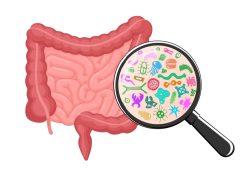 A team of researchers have examined the role of gut bacteria in developing food addictions and excessive eating habits. They found that certain gut microbiota can lead to the onset of food addiction in both mice and humans, which may cause obesity.
A team of researchers have examined the role of gut bacteria in developing food addictions and excessive eating habits. They found that certain gut microbiota can lead to the onset of food addiction in both mice and humans, which may cause obesity.
Food addiction is characterized by a loss of control over food intake and is associated with obesity and other eating disorders. It also involves alterations in the composition of gut bacteria. Previously, the mechanisms behind this behavioral disorder were largely unclear.
The Yale Food Addiction Scale, which includes 35 questions for humans, was employed to diagnose food addiction in both mice and humans. For mice, the scale’s criteria are broken down into three categories: relentless pursuit of food, intense drive to secure food, and obsessive eating behavior.
Researchers then studied the gut bacteria of mice categorized as addicted to food comparing it to the non-addicted mice. They noted an elevation in bacteria from the Proteobacteria phylum and a reduction in bacteria from the Actinobacteria phylum in the food-addicted mice. Additionally, these mice showed a reduction in Blautia bacteria from the Bacillota phylum.
The research on both mice and humans indicated that certain microbiota may act as protective agents against food addiction. This study has shown for the first time a direct link between gut composition and brain genetic activity, exposing the intricate and diverse origins of this behavioral disorder associated with obesity. The study highlighted that proteobacteria might contribute negatively to the development of food addiction in both species, while actinobacteria could have a protective role.
These findings could lead to the identification of new biological indicators for food addiction and facilitate the exploration of these beneficial bacteria as potential therapeutic agents. Currently, there are no effective treatments available. Future strategies might involve employing beneficial bacteria alongside dietary supplements.
To view the original scientific study click below:
Gut microbiota signatures of vulnerability to food addiction in mice and humans





